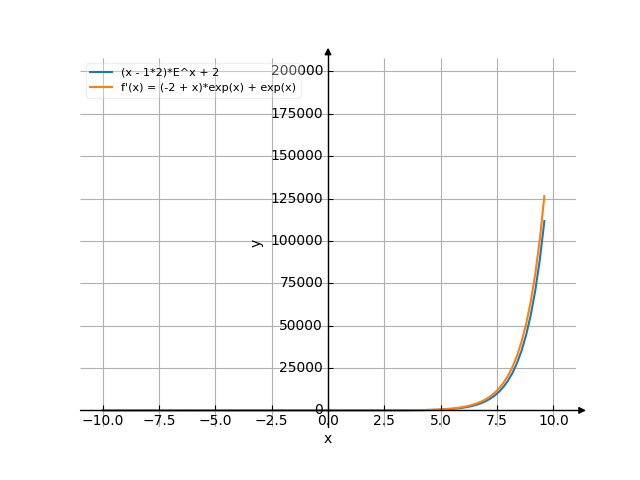Derivative of (x-2)e^x+2
The solution
You have entered
[src]
x (x - 2)*e + 2
$$\left(x - 2\right) e^{x} + 2$$
d / x \ --\(x - 2)*e + 2/ dx
$$\frac{d}{d x} \left(\left(x - 2\right) e^{x} + 2\right)$$
Detail solution
-
Differentiate term by term:
-
Apply the product rule:
; to find :
-
Differentiate term by term:
-
Apply the power rule: goes to
-
The derivative of the constant is zero.
The result is:
-
; to find :
-
The derivative of is itself.
The result is:
-
-
The derivative of the constant is zero.
The result is:
-
-
Now simplify:
The answer is:
The graph


![Find the derivative of y' = f'(x) = (x-2)e^x+2 ((x minus 2)e to the power of x plus 2) - functions. Find the derivative of the function at the point. [THERE'S THE ANSWER!] (x-2)e^x+2](/media/krcore-image-pods/176/hash/derivative/b/88/08a55d291de682adb61157a91245d.png)
 Derivative of y=2x+1
Derivative of y=2x+1
 Derivative of asin(t)
Derivative of asin(t)
 Derivative of 7/x^4
Derivative of 7/x^4
 Derivative of x*sin(4*x)
Derivative of x*sin(4*x)